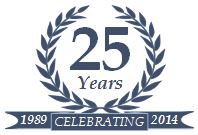January is National Mentoring Month, created in 2002 by the Harvard T.H. Chan School of Public Health “to focus national attention on the need for mentors, as well as how each of us—individuals, businesses, government agencies, schools, faith communities and nonprofits—can work together to increase the number of mentors to assure positive outcomes for our young people”.
When you reflect back on your best learning moments; when someone was mentoring you, or perhaps you were mentoring someone, what made that moment stand-out for you? How did that impact you? How did that impact the lives of others?
If we are fortunate, we will have many mentors along the way. I was fortunate to have been introduced to Appreciative Inquiry (Ai) by Charles Miller and Nancy Stetson. As a Community College Human Resources Administrator, I saw Ai’s immediate application in my daily practice. I did not know at that time, that my life would radically change as a result of me meeting this dynamic duo. When Charles and Nancy gently and lovingly shared The Center for Appreciative Inquiry with Jim Pulliam and me – it was not just a new chapter in my life being written, rather a new book.
The “hand-over” of the consulting practice took years as Charles and Nancy guided us about the basics of the Corporate operations (Company of Experts, Inc.) and the emotional connection to the Appreciative Inquiry Facilitator Training (AIFT©) which they developed together. While there are many facets to this Company, the passion Charles and Nancy had for the AIFT© was what inspired Jim and I to connect with them and join them in sharing this remarkable program with hundreds of people, organizations and communities around the World.
As the years passed, Charles became my mentor for the AIFT© and other Appreciative Inquiry projects and consulting work. During this time, I had the opportunity to work with him on two major projects: Creative Change through Imagination (CCTI) and The Macon Miracle. The CCTI was designed to build connections between business and education. The Macon Miracle was an inquiry with over 4,000 people. As we worked together, I would watch Charles as he engaged with others. He was always available for guidance and mentorship – and with gentle and thoughtful questions – he would facilitate a mini-inquiry – rarely providing answers in the hopes that through his questions, the answer may present itself to you.
After his passing in 2015, many shared reflections about him – mentor, inspiration, coach, wisdom, deep spirit of life and energy, and that he always taught us through his actions that life is about relationships.
Charles was right, Life IS about relationships and he did a wonderful job in cultivating the relationships with those he met. Charles made time to send us (myself and the rest of the Center for Appreciative Inquiry staff) short emails of encouragement. We received these notes – always written in the affirmative – after almost every training conducted or email promotion sent. About two weeks after his passing, we came across an email from him that appeared to have gotten lost in the mix of things. This email read, “Your guys’ email looks great. Good work!” This email was a reminder to us at the office that Charles is not far away and will always be with us.
January 21st is Thank Your Mentor Day (the website above has a list of suggestions on how to show appreciation to your mentor). This year, I will show my appreciation and pay tribute to Charles Miller by:
- This humble post is my expression of how much Charles contributed to my professional and personal growth;
- Contribute to the newly established “Charles R. Miller Disability Resources Department Fund” at the Santa Rosa Junior College Foundation. If you would like to contribute to this fund, click on this link.


 This past week, during a training, a request was made of us – please send a message out to encourage people to write to the White House, to politicians, as well as to others who are interested in constructive, positive dialogue about the future of the U.S!
This past week, during a training, a request was made of us – please send a message out to encourage people to write to the White House, to politicians, as well as to others who are interested in constructive, positive dialogue about the future of the U.S!
